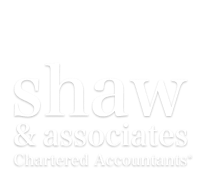Self-Employed People Challenged by New Rules for Qualifying for Mortgages
March 3rd, 2018
Posted in: Tips & Insights

There have been changes made in Canada’s mortgage approval system that can make it harder for self-employed people to qualify for a mortgage. Self-employed people are in a Catch-22 situation when they try to apply for a mortgage—they take deductions to reduce their income and reduce the amount of taxes they owe, but this makes it appear to the mortgage lender that their incomes are artificially low. This is an excellent discussion to have with your accounting professionals—what are your best options if you are thinking about taking on a mortgage and you are self-employed?
In 2012, the Office of the Superintendent of Financial Institutions introduced Guideline B-20, which required federally regulated banks to tighten processes for approving mortgages and Home Equity Lines of Credit (HELOCs). Credit unions were exempt from these changes—credit unions still allow borrowing up to 80% of the purchase price without requiring default insurance. These rules are now implemented across the mortgage industry.
Self-employed people used to qualify for mortgages by using “stated income” applications (which needed proof of self-employment and a signed income declaration). Self-employed people can still apply for a mortgage using a stated income application, but at some banks they now require default insurance from Canada Mortgage Housing Corp., Genworth Canada or Canada Guaranty if they borrow 65% of the purchase value. Self-employed people were previously allowed to borrow up to 75% of the purchase price before requiring default insurance.
To help self-employed people qualify for a mortgage, they may be asked to supply their latest notice of assessment from the Canada Revenue Agency, their most recent two years of financial statements, and bank statements for proof of income being deposited to their bank account.
Self-employed people will also need to be up-to-date with income taxes, sales taxes, and not have any taxes owing when applying for a mortgage. A self-employed person should also be ready to explain what is going on with their business financially—income, expenses, projected timelines, plans for expansion, break-even points, etc.
Another thing to think about: incorporating can help you qualify for a mortgage. Banks prefer salaries, and you can pay yourself a salary if you are incorporated. If you are in a place where you are already thinking about incorporating, this might be the right time to go ahead with that. This is a good discussion to have with both your accountant and your lawyer.
Contact Shaw & Associates Chartered Accountants to help you out with your financial needs and tax planning and to give you the advice and services that will take you from where you are to where you want to be with your business. One complimentary meeting with us will put you and your business on a more profitable and positive path.

